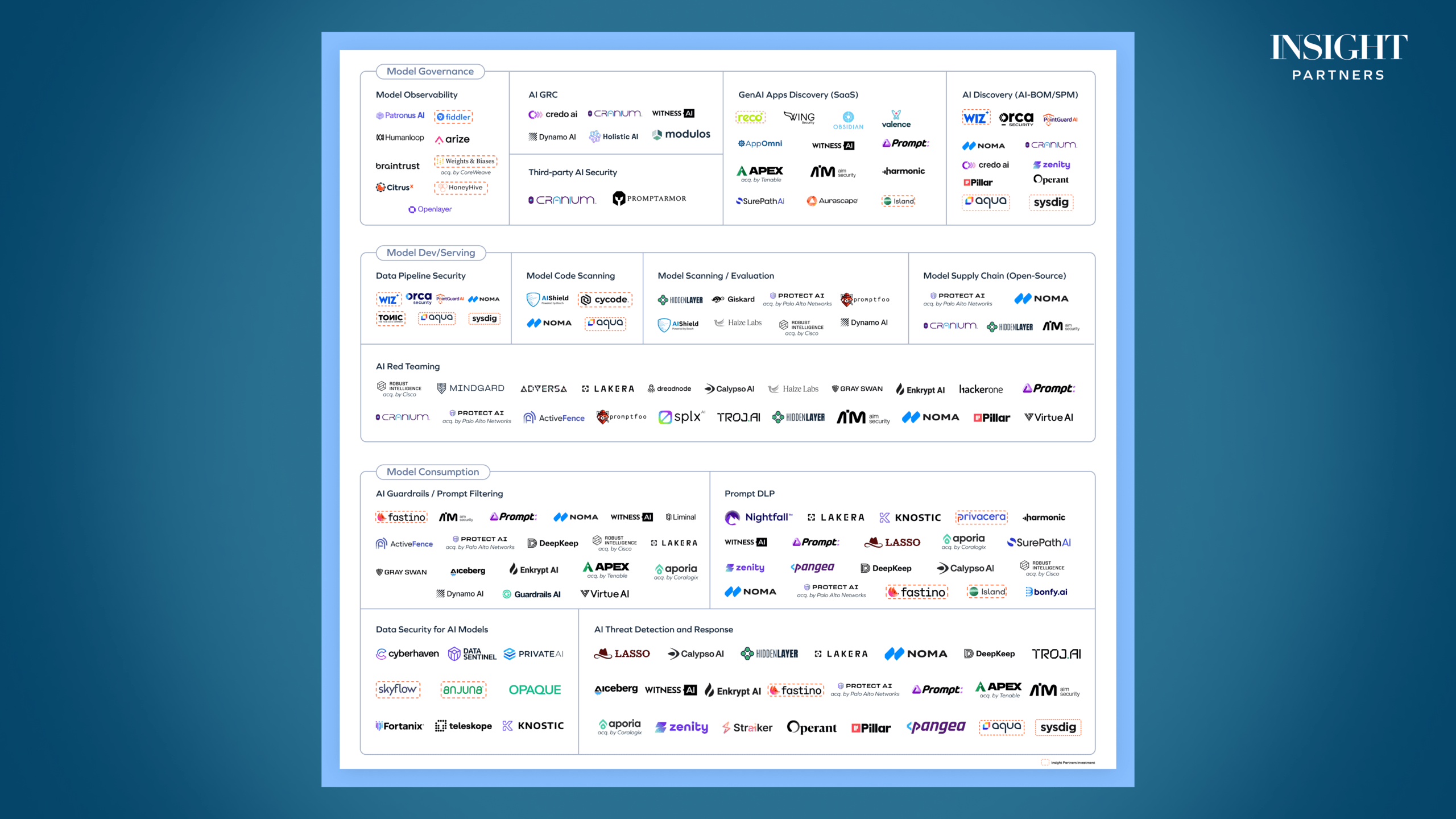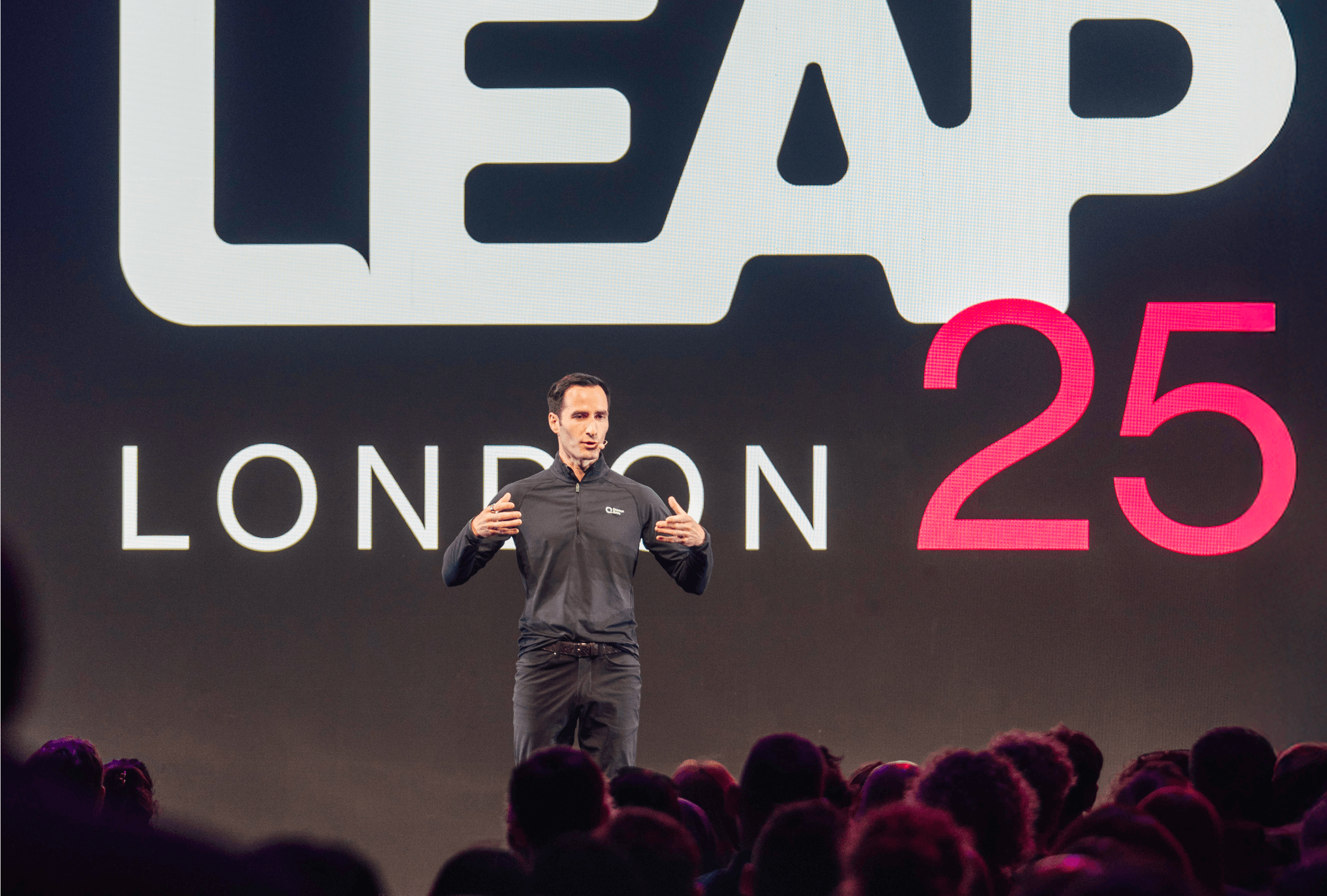We put SearchGPT to the test. Here’s what it means for SaaS marketing
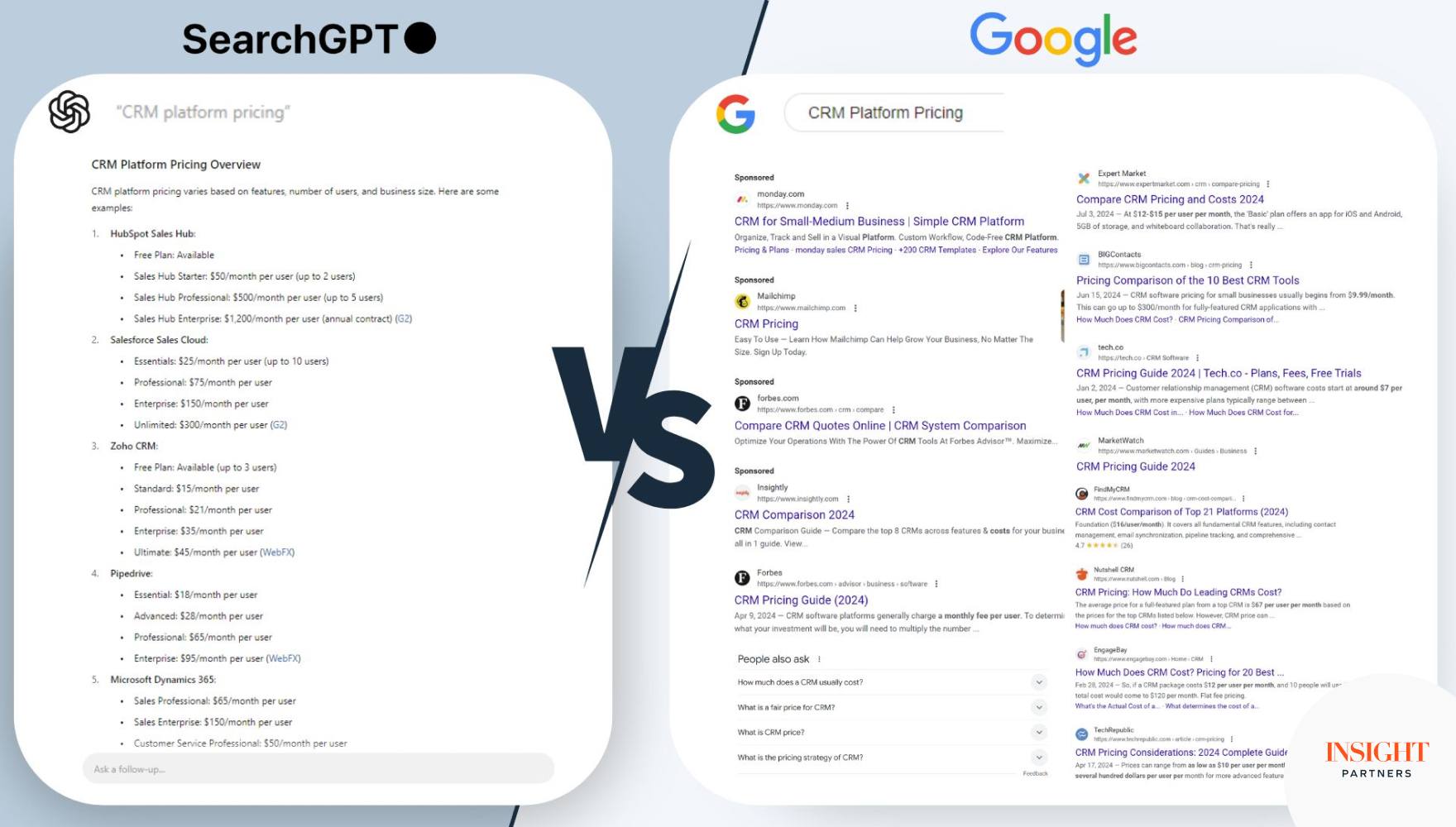
On July 25th OpenAI announced SearchGPT, their long-rumored prototype of generative AI-powered search. While there are already quite a few write-ups on SearchGPT, most have focused on the impact to Google’s search dominance. Few have focused on the potential impact on the marketing engine of the SaaS industry, where SEO and content are often critical drivers.
Insight Partners got early access to SearchGPT and we have been extensively testing it. Below are some live screenshots from the prototype, our observations, and how we’re thinking about SearchGPT’s potential impact on search for Insight portfolio companies.
Before you start looking at screenshots and drawing your own conclusions, here are a few of ours.
- For consumers: Some will find this to be a superior search option and we expect there to be significant adoption when it becomes more widely available.
- For SaaS content marketers: The best quality content is still going to win in SEO or LLMO (Large Language Model Optimization), but it’s not going to drive as much traffic to your site. It’s time to get more creative about content strategy.
- For C-suites: There are no ads, and you can’t buy your way into results. If you’re very reliant on paid search, you better start focusing on diversification.
How is SearchGPT different than ChatGPT?
To understand SearchGPT, you have to understand the difference between Pure Generative Models versus Retrieval Augmented Generation (RAG). Pure Generative Models create responses based on their training data. Models retrain infrequently, meaning they can get out of date quickly. RAG addresses these limitations by incorporating a retrieval mechanism to fetch relevant documents from a universe of information, ensuring better responses.
ChatGPT responses were initially Pure Generative. Asking about the news was fruitless; “I’m only trained on data up to September 2021” was a common response. ChatGPT-4o introduced some aspects of web search where RAG would supplement the training data to help improve results. Google’s AI Overviews are heavily RAG-based responses, grounded in web search results versus training data, making them more valuable to search users.
SearchGPT attempts to go one step further. It combines real-time RAG capabilities with the advanced natural language processing power of ChatGPT. This blend of semantic comprehension and timely data is an attempt to make SearchGPT results the most accurate, current, and contextual responses possible. However, like other AI platforms, SearchGPT responses are still fallible if they source from incorrect data, and OpenAI has a long hill to climb to match the level of trust Google Search has built with the public.
There are pros and cons to Google versus SearchGPT, and which you prefer will likely come down to personal preference, but we can confidently say SearchGPT will not be a weak competitor to Google Search. You can request access to the SearchGPT waitlist to experience it for yourself.
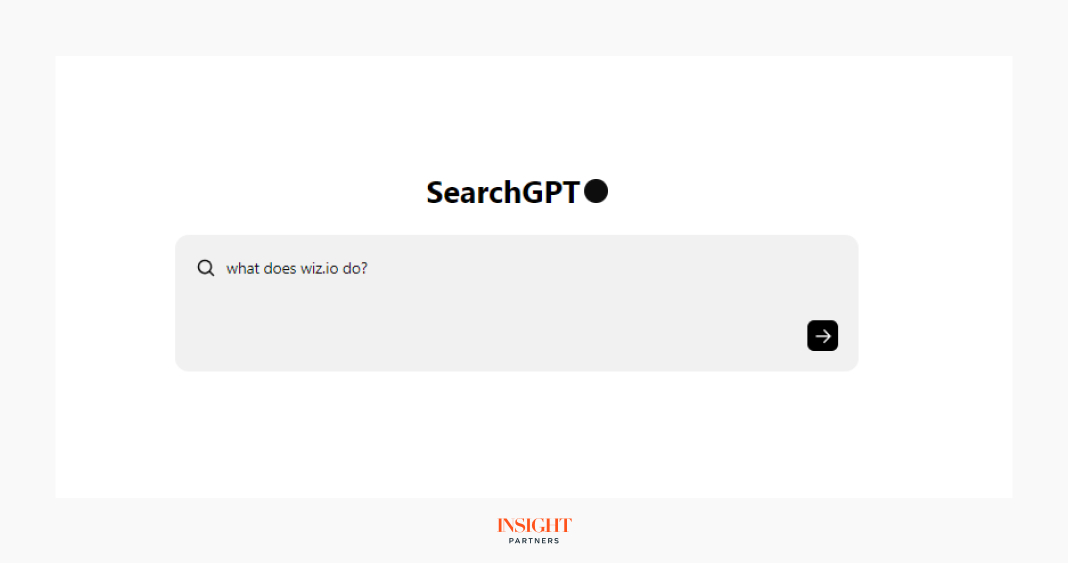
The anatomy of SearchGPT is simple and familiar. The search interface is very stripped down, with just a single query box and button. When you first run a search, most sources are hidden and only small citations are shown. The text response is the main focus on the page, and where most users will spend their time.
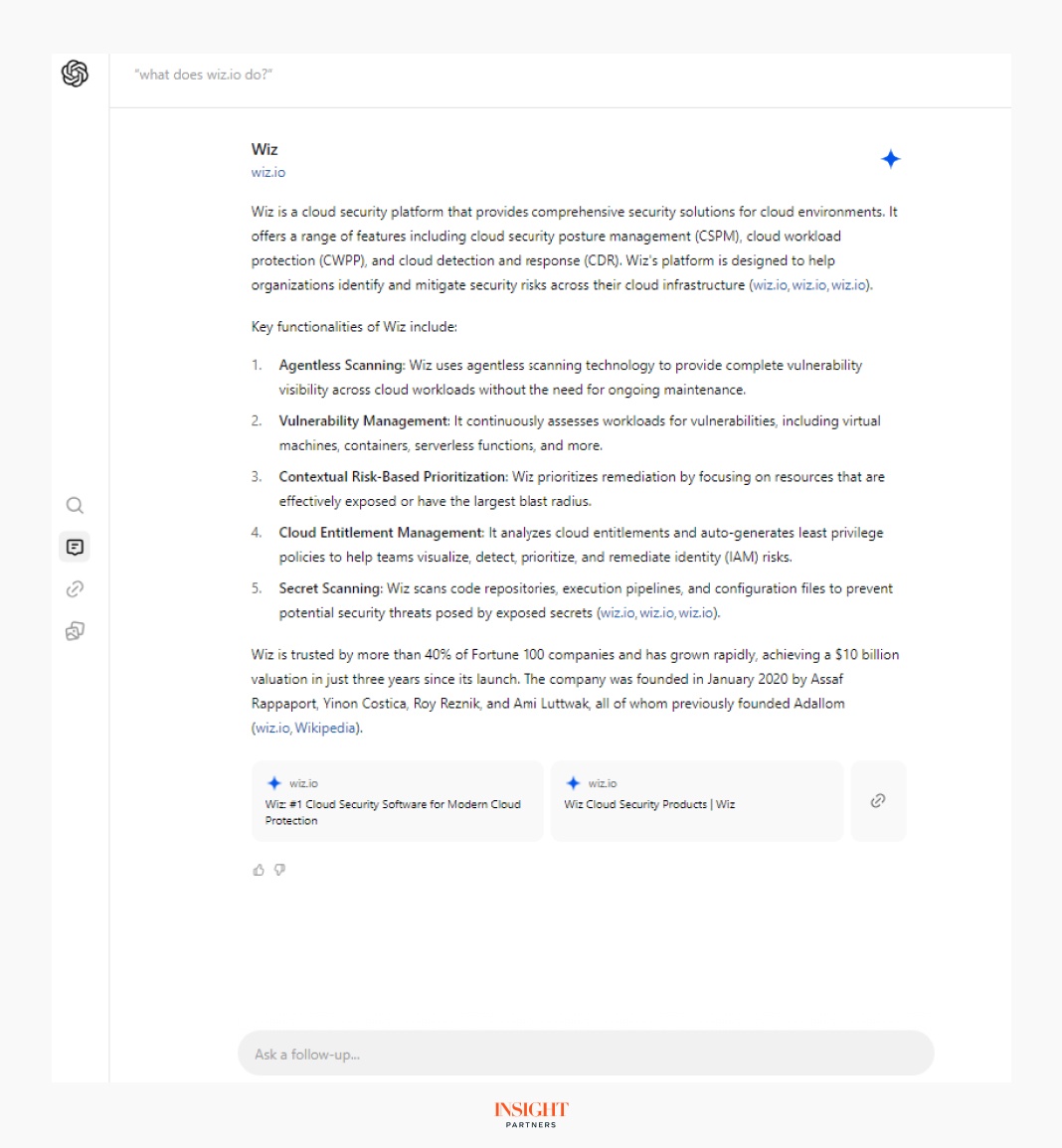
For the screenshots below, we’ve expanded the sources tab on the left-hand side of the page. We are not sure whether consumers will use this, but it helps us to better understand the inner workings of SearchGPT.
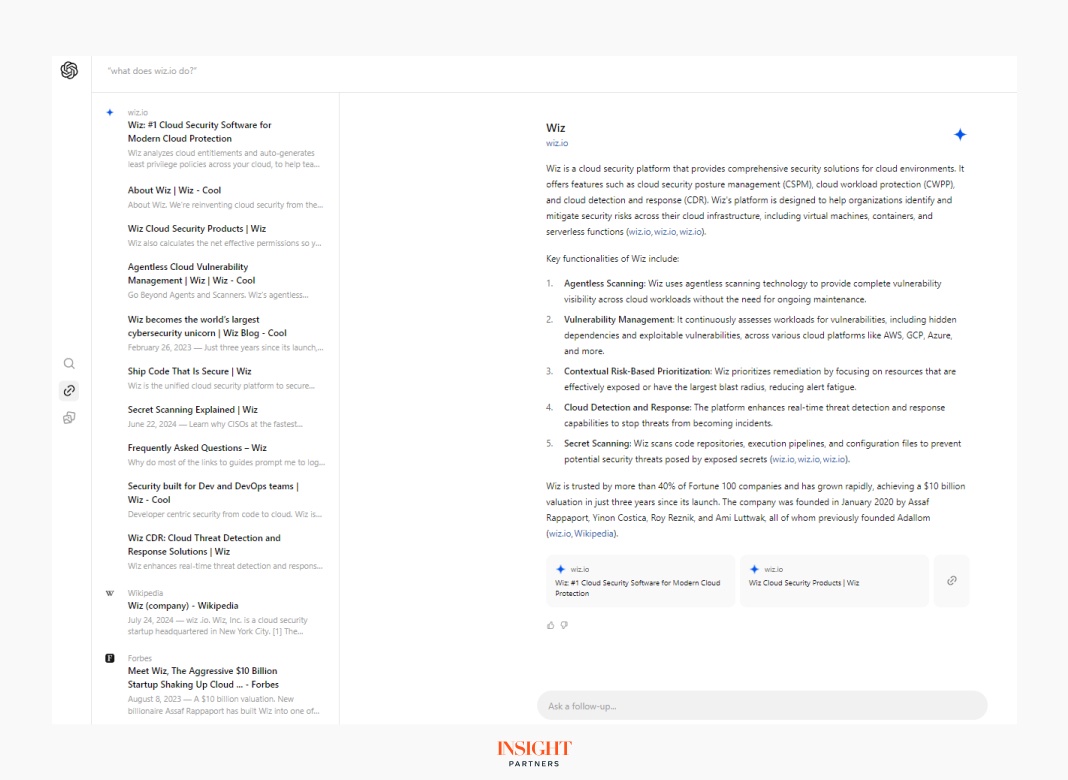
What does SearchGPT look like?
Branded search
SearchGPT branded results are more focused on your brand than Google results. This can be good — less fear of competitors showing up for your brand, negative press, reviews, or Reddit threads to contend with. However, there is also less branding to the searches in SearchGPT, typically featuring just text-based stats similar to what is currently found in Google’s Knowledge Graph (both frequently sourced from Wikipedia).
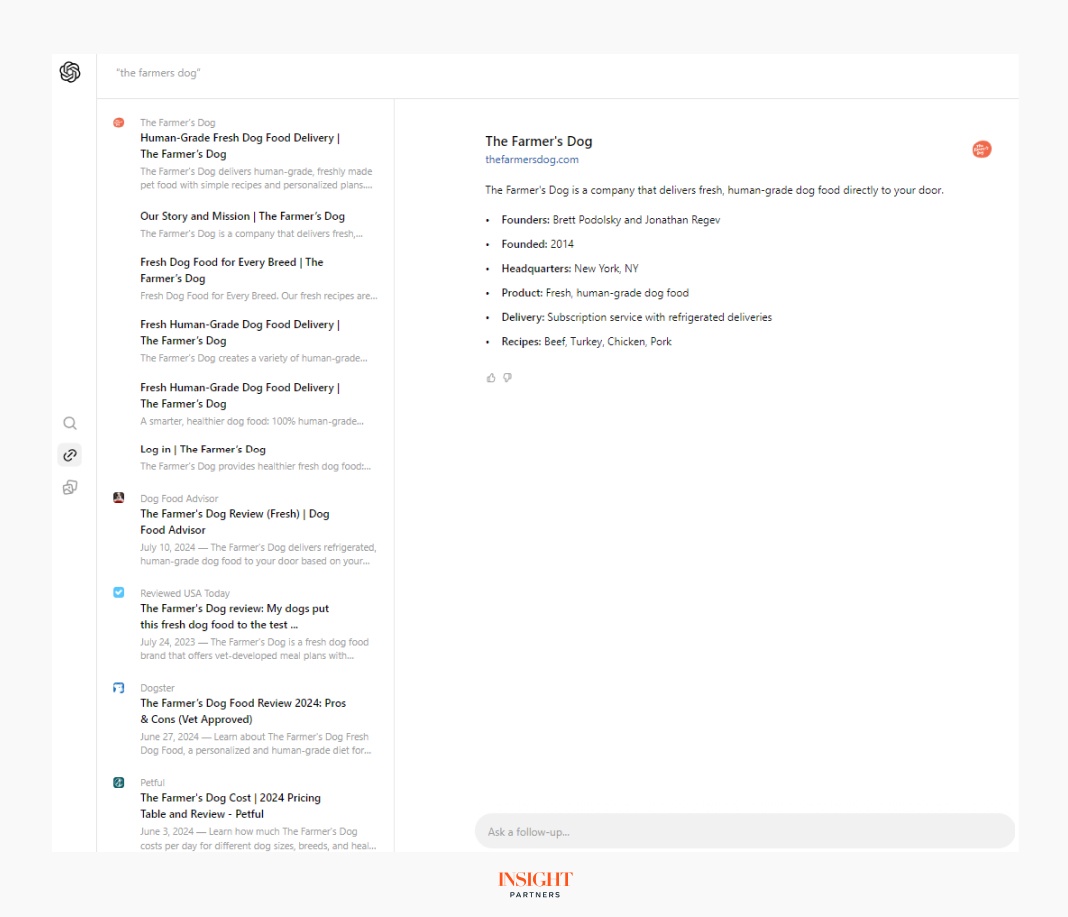
Extended branded search, especially worded as a question, elicits a more detailed and opinionated response from SearchGPT. This can include perceived strengths and weakness or rich media types like YouTube videos (in case you were concerned that type of content was no longer going to be valuable).
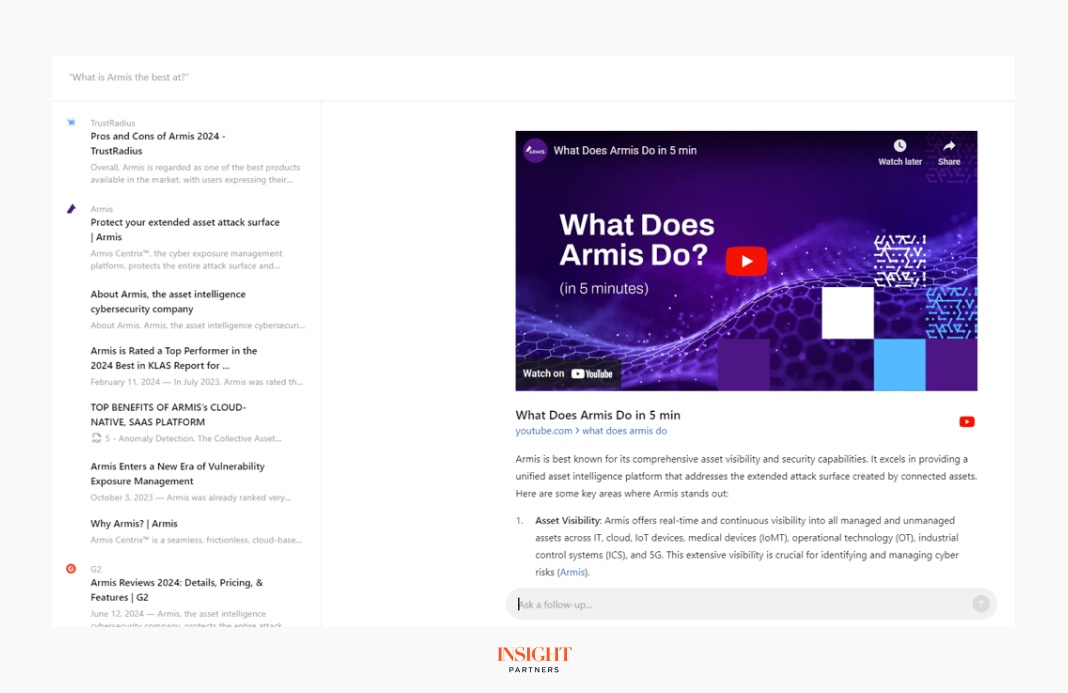
Informational search
Informational search queries — where users seek general information on non-branded terms — are particularly ripe for AI search results, and we can directly compare SearchGPT to its Google counterpart AI Overviews (fka Search Generative Experience).
Googling “conversion rate for free trials” prompts an AI Overview result summarizing what a free trial conversion rate is, how to calculate it, and provides a set of benchmarks. Google assumed the user is looking for benchmarks.
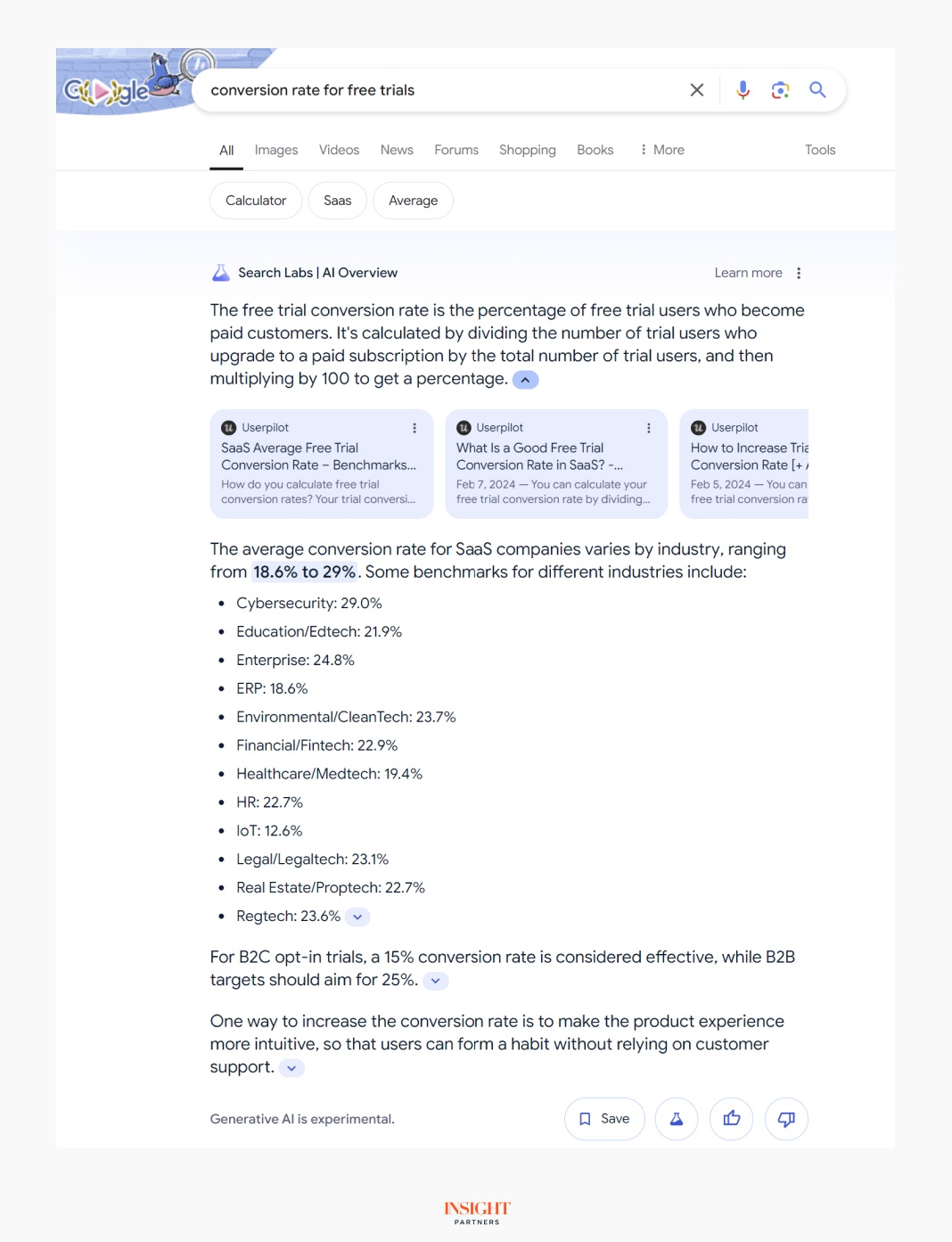
The SearchGPT result better addresses the broadness of informational queries, offering a wider range of information.
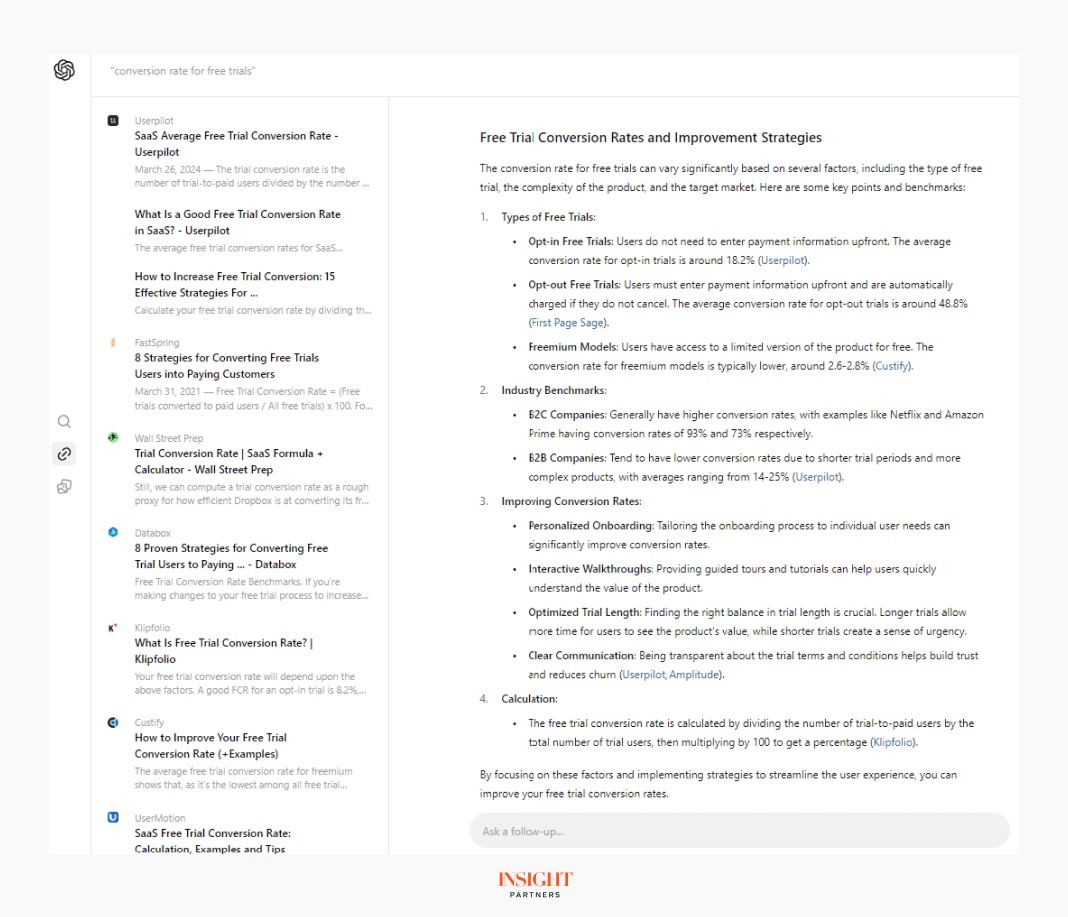
Commercial search
Google is a research tool and at its core, a marketplace. It wants you to click (and gets paid for it). A search for “CRM platform pricing” returns a crowded playing field; various CRM platform ads, third-party lists and comparisons, the “People Also Ask” module, and organic brand listings. Without clicking on at least one link, and likely several, the Google results page hasn’t actually provided any information on “CRM platform pricing.” It’s merely a knowledge broker, directing traffic to what it deems credible and relevant sources.
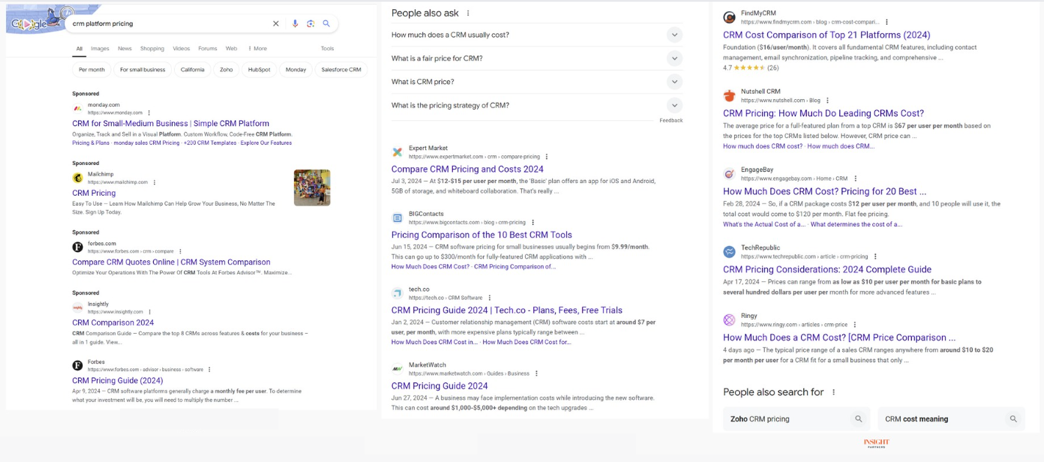
SearchGPT, on the other hand, is an answers tool that will do the research for you. It does its best to infer what you’re looking for and tries to provide the most relevant and complete answer without you needing to do more research. SearchGPT cares less that you click on a source for further reading, and more that you get the specific answer you’re looking for, right away.
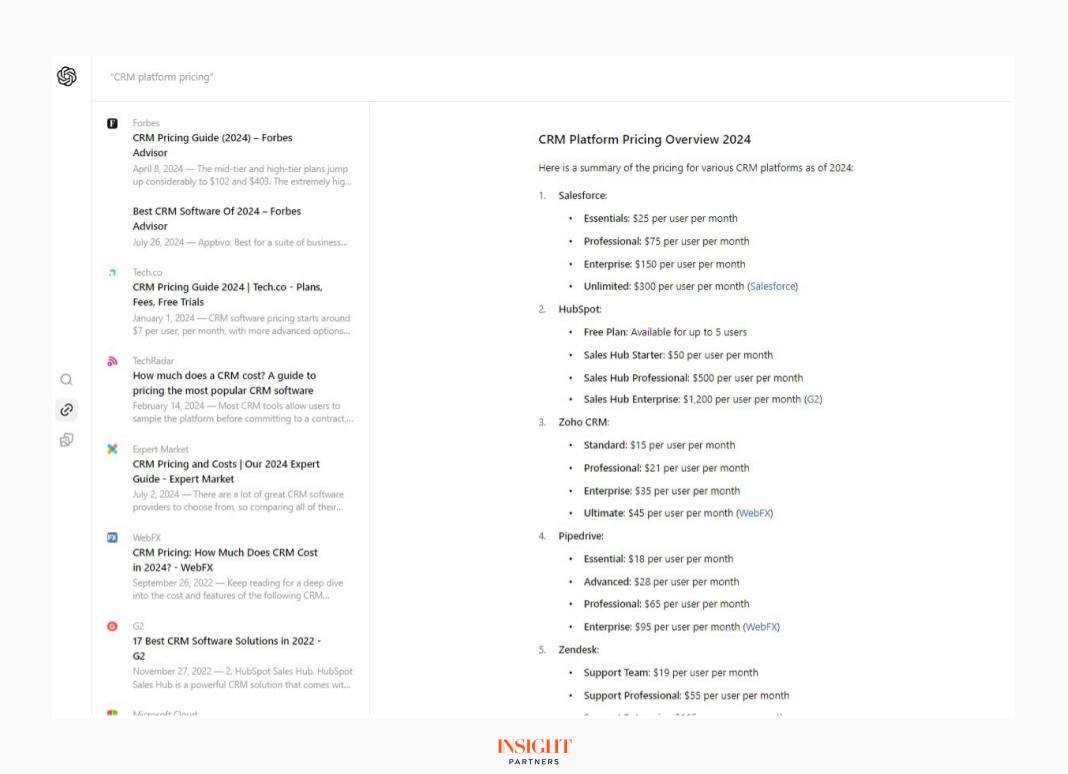
When asked a specific question (or a follow-up to a search result), SearchGPT is able to answer directly in a way Google is just not built to do. For example, it will compute software costs for a given business scenario based on pricing information it can find on the web.
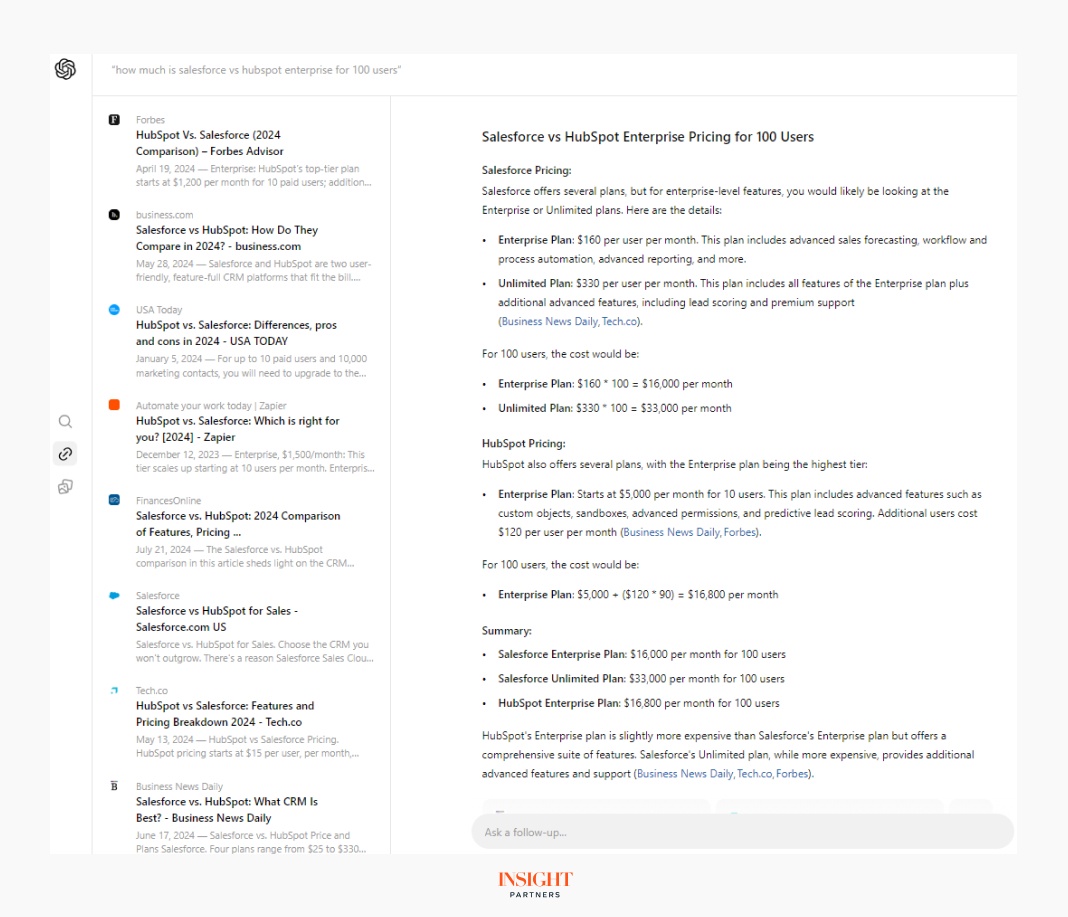
When asked questions, SearchGPT synthesizes reviews to form opinionated content. It doesn’t just provide a list of the top project management software; it also creates a quick description of why people like this product and what it’s considered best at, based on retrieved sources.
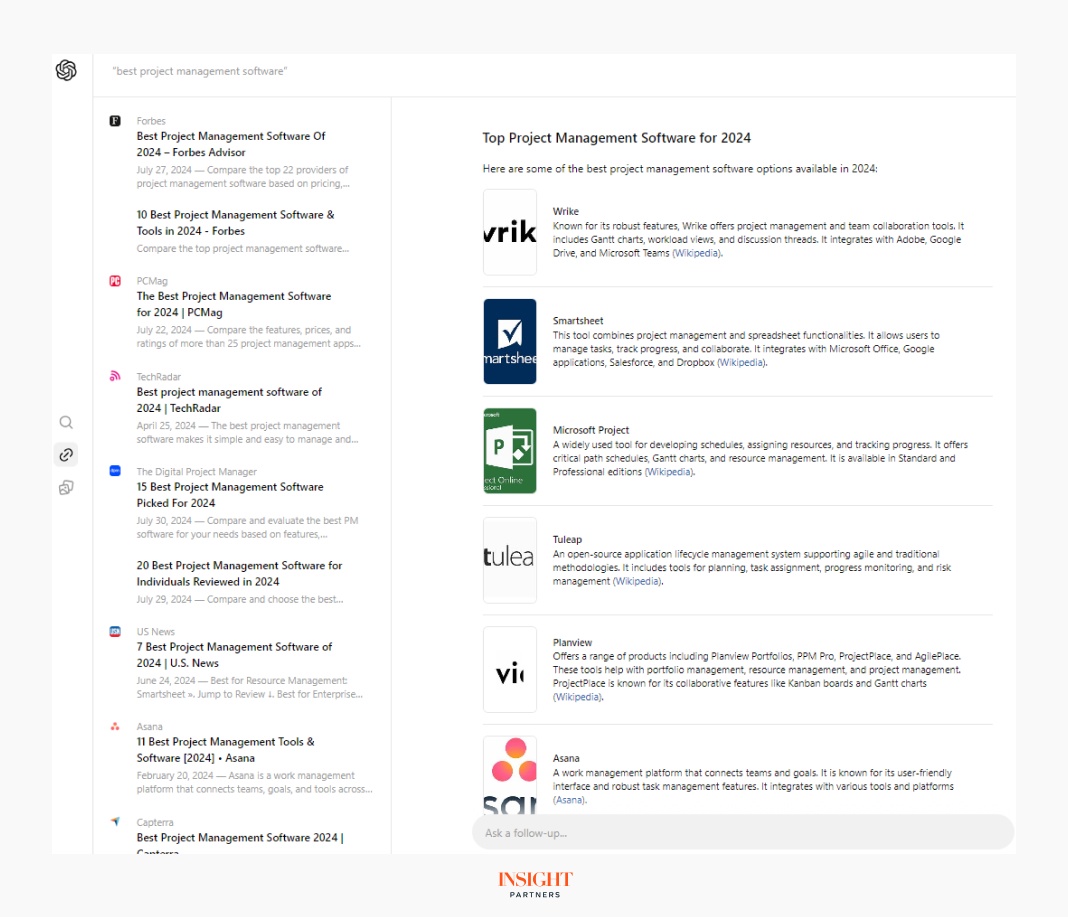
This, again, is more in line with an answer engine than a traditional search engine which connects you to sources and plays the role of marketplace.
What does SearchGPT mean for search?
Google AI Overviews has not been as impactful as we originally predicted, mostly because it’s not all that common. When it was still in Labs and called SGE it featured prominently on more than two-thirds of searches. Now, AI Overview only shows up on 11% of searches and only on 4% of trending news searches.
Consumer search habits may change
SearchGPT is an opportunity for generative search to move into the forefront of the consumer mindset by offering more relevant and complete answers directly within the search interface. Given some of the examples above, we think consumers may alter their search habits and use both tools for different search types.
SearchGPT could drive intense competition in paid and organic search
The average Insight portfolio company drives 30% to 40% of its pipeline with organic and paid search. If SearchGPT — in its current ad-free form — pulls significant market share from Google, SaaS GTM engines could be thrown into flux. The lack of ads in SearchGPT could drive intense competition within the remaining ad inventory on Google. Much of the content that is SEO-optimized for Google would still be valuable and cited by SearchGPT, but would not gather nearly as much traffic (although potentially higher quality traffic).
Focus on high quality — but also third-party and holistic approaches
If SearchGPT gains traction, SEO strategies will shift even further toward emphasizing the creation of high-quality, authoritative content that AI can parse and recombine with other sources. But that alone won’t be enough — organic strategies will also become more holistic and focus on seeding content into third-party sources. Brands and marketing teams will need to recognize that content strategy could be as much about influencing the search results page as it is about driving traffic to your site.
As SearchGPT evolves, we believe it will shake up user expectations and promote a more dynamic and competitive search space. SaaS companies and their marketing teams need to be ready to react and rethink their current strategy. Insight Onsite — our dedicated in-house growth engine of over 140 professionals — will be here to keep our portfolio companies adaptable as the old playbooks get thrown out and new ones get drafted.
Read more from Onsite’s marketing experts
Cut through the generative AI noise with Modern Word of Mouth™
Generative AI, SEO, and what leaders should know: Google search in the future
Founder 101: How to build your brand at every stage of growth
Note: Insight Partners has invested in Wiz, The Farmer’s Dog, and Armis.

